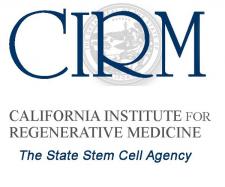In world of stem cell research, ‘UC Caucus’ reigns supreme
By David Jensen,
Capitol Weekly
| 06. 21. 2021
They could be called the “UC Caucus,” although that may presume too much. Nonetheless, they come from an institution that has pulled down $1.2 billion from the California state stem cell agency, more than any other enterprise during the last 16 years.
Not to mention that their employer — the University of California — is likely to snag much, much more during the next decade or so.
The “caucus” is composed of the 13 persons with ties to the University of California (UC) who are also members of the governing board of the state’s $12 billion stem cell agency, known officially as the California Institute for Regenerative Medicine(CIRM).
The board is so large, in fact, that at times its board members have outnumbered the CIRM staff.
The UC 13 constitute the largest voting bloc on the CIRM governing board. The “caucus” includes Art Torres, who is a member of the UC Board of Regents and the salaried, vice chairman of the CIRM board of directors. Torres is a well-seasoned, former state politician with decades of vote-counting experience.
The CIRM...
Related Articles
By Scott Solomon, The MIT Press Reader | 02.12.2026
Chris Mason is a man in a hurry.
“Sometimes walking from the subway to the lab takes too long, so I’ll start running,” he told me over breakfast at a bistro near his home in Brooklyn on a crisp...
By Diaa Hadid and Shweta Desai, NPR | 01.29.2026
MUMBRA, India — The afternoon sun shines on the woman in a commuter-town café, highlighting her almond-shaped eyes and pale skin, a look often sought after by couples who need an egg to have a baby.
"I have good eggs,"...
By George Janes, BioNews | 01.12.2026
A heart attack patient has become the first person to be treated in a clinical trial of an experimental gene therapy, which aims to strengthen blood vessels after coronary bypass surgery.
Coronary artery bypass surgery is performed to treat...
By Staff, ScienceDaily | 01.05.2026
Scientists at UNSW Sydney have developed a new form of CRISPR technology that could make gene therapy safer while also resolving a decades-long debate about how genes are switched off. The research shows that small chemical markers attached to DNA
...




